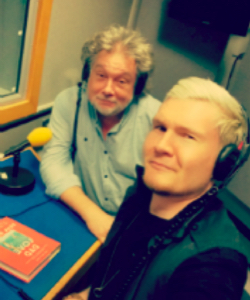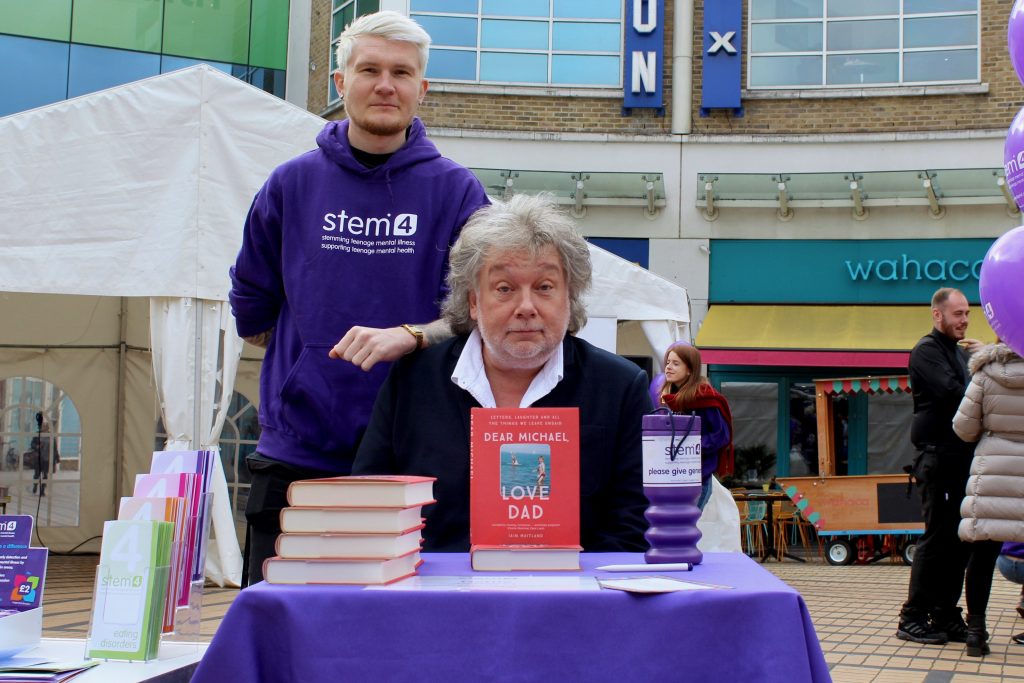“The ripple effect of what she is doing is absolutely incredible – she’s changing lives and saving lives.”
stem4 ambassador Iain Maitland describes the teenage mental health charity’s founder and CEO Dr Nirhara Krause.
There have been more than two million downloads across Merton-based stem4‘s free mental health apps – such as Calm Harm – with the charity taking to webinars during lockdown to reach parents and carers.
The charity influenced more than 400 parents and carers in one night alone across Merton and Wandsworth on 12 November through a free virtual conference.
Dr Krause said: “The demand for our work has quadrupled through the pandemic.
“We know the pandemic has had an impact on young people.”

The 400+ conference attendees received guidance from Dr Krause on how to build resilience and identify and manage ill-health at an early stage before real life stories from ambassadors were shared.
“It’s a really positive thing that we can offer – parents always want more, to share with their partners and friends.
“All of us are on a spectrum of wellness and illness – we need to be able to be aware of it and move ourselves towards wellness, and also pick up on illness,” Dr Krause added.
“It’s a really worrying statistic”
The importance of the charity’s work and recent conference became stark when Dr Krause elaborated on contemporary mental health statistics for young people.
She said: “Pre the pandemic, in 2017, one in nine children between 5-16 presented with a mental health condition to the NHS.
“NHS Digital now report this as one in six.
“Self-harm has gone up – as high as 28% in young girls and 20% in young boys – it’s a really worrying statistic”.
stem4’s Calm Harm aims to alleviate the urge to harm through guiding people to quick and easy practical exercises or breathing exercises.
Taking steps to help stem problems at an early stage is a key feature of stem4’s work – providing advice and tips on how to spot signs.
Dr Krause said: “I think young people find it difficult to express their emotions, so they express it through their behaviours.
“Look at friendships and friendship changes – they might not find it easy to tell you something is wrong, but the way they do it is by excluding themselves from friends or things that they enjoy.”
Dr Krause said the conference audience appreciated the real-life stories supplied by ambassadors – author Iain Maitland and actor Rosie Day.
“They particular liked the openness of our amazing ambassadors – that real life combined with the theoretical bits,” she said.
“It’s a brilliant story – I’m really proud of him.”
Maitland recounted the experience of learning and dealing with the health conditions of his son Michael – now 33 and a fellow stem4 ambassador.
He said: “He went to university and suffered from anxiety and depression.
“It rolled into anorexia.
“I got a text from his girlfriend at the time saying he’d been taken to hospital.
“It’s the longest five minutes of your life – waiting to hear back whether your son is going to die or whether he’s going to be okay.”
Michael had suffered a collapsed lung.
Recovery
His recovery took him to The Priory for five months, and then he returned home in 2015.

Maitland expanded on why preventative measures which stem4 give guidance on are so important.
“I always had a very close relationship with Michael, but I never properly talked to him – I never asked him how he felt,” he said.
“It took him a long time, and us (his parents) even longer – it was only when he collapsed that we realised it was serious trouble.
“2015 was his lowest point – we thought we would lose him.
“He clawed his way back and for the past two or three years he’s been fine.”
Structure to Michael’s day has been key for his son’s recovery according to Maitland – including exercise and video games.
Michael Maitland now works as a tattoo artist, with his partner expecting their first baby.

Maitland said: “Pacing himself has been important, not taking too much on and just trying to exercise as much as possible.
“It didn’t look like it would turn around for him, but it did.
“It’s wonderful. I’m really proud of him.”
Their story is chronicled in his book ‘Dear Michael, Love Dad’.
“We sound big, but we’re absolutely tiny!”
stem4’s work began in schools providing student talks – at times reaching up to 140 at once – prompting them to support friends, peers and their own mental health.
Despite its success so far, stem4 consists of a small team.
Dr Krause said: “There’s nine (of us) part-time and me as full-time.
“We sound big but we’re absolutely tiny!”
She explained that the charity’s future looks good given its digital strategy but is looking for further funding.
She added: “I don’t believe in charging for apps for young people.
“We would really, really like to secure some regular sources of funding so we can expand.”
stem4 donations can be made here
For a programme of the conference material email [email protected]
stem4 apps are available on Google Play and the App Store




